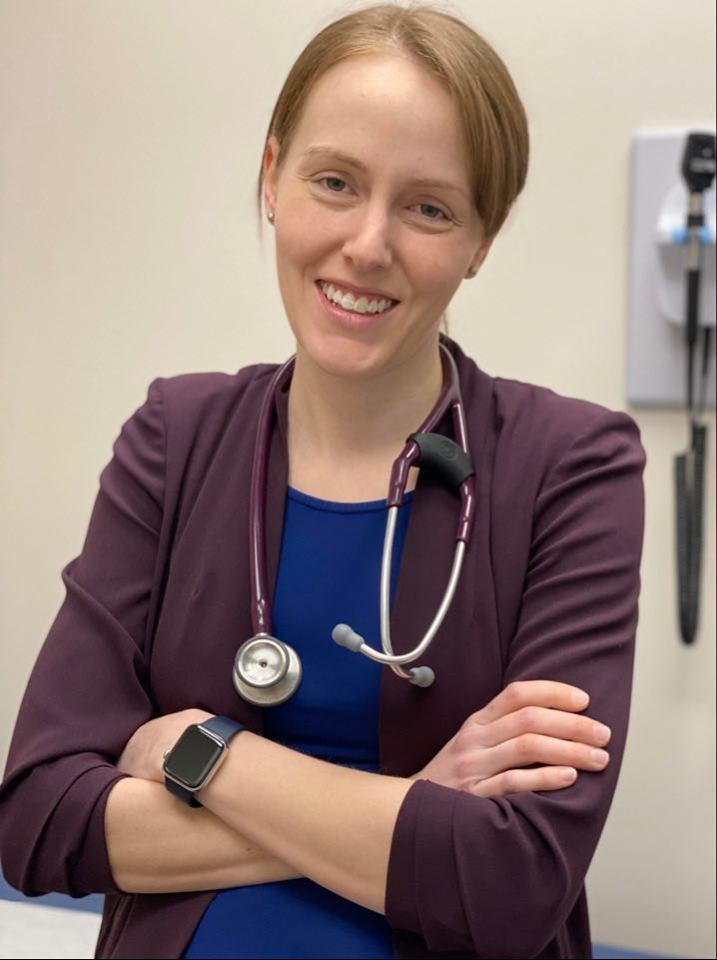One day after the government of Alberta announced an app that would connect people to a doctor virtually, family physicians are voicing their frustrations.

On Thursday, the province announced the Babylon app would be offered through an alternative relationship plan (ARP) between the Alberta government and TELUS.
The government said the app is meant to supplement existing services. A spokesperson also stressed the province is hearing calls from doctors to better support virtual care and a plan is in the works with more details to be announced “in the coming days.”
The Babylon app is not available to all Alberta physicians. In fact, it’s a relatively small project (with an annual budget of $1.5 million) that only involves a small group of doctors.
“I am beyond frustrated at this,” Dr. Heather Shonoski, a physician in Peace River, wrote in a letter shared on Facebook.
“Family physicians have been begging the health minister to allow us to provide virtual care to our patients so that we can keep our vulnerable patients at home and promote social distancing. We want to be able to provide high quality care even if our patients or ourselves are in self-isolation.”
After hearing about Babylon, Shonoski said doctors at her clinic called TELUS to ask about using it. They were told they cannot see their own patients through the platform and that it serves as a virtual walk-in, she said.
“We want to be able to see our own patients in our own critically under-served rural community where we know our local resources.
“We want to provide continuity of care, which has been proven to save lives and minimize resource use… If we could see our own patients we could do our own follow-up or arrange cross-coverage with proper handover to a colleague in our own community. This would minimize the risk of medical error.”
Shonoski said health-care workers are preparing for increased demands in the face of the COVID-19 pandemic. They’re also trying to find ways to keep patients and health-care workers safe, including providing patient care over the phone or through other video-chat and remote methods.

“The billing code for virtual care and phone advice available to physicians in this pandemic is set at the same rate as it was during the H1N1 pandemic – $20 per patient. Providing adequate care can sometimes take up to 40 minutes of direct counselling, reviewing labs, sending prescriptions, etc., per patient. At this rate, physicians providing virtual care will not be able to afford to pay their overhead.
“We are faced with yet another difficult choice during this crisis: do we have patients physically come in to the clinic and increase their risk or do we shut down our clinics/go bankrupt/lay off our staff and keep patients safe?”
Several other doctors reached out to Global News with similar concerns.
Brendan Vaughan, a Calgary doctor working at Southport Family Practice, said he has no problem with patients accessing health care in a way that works best for them but he does have a problem with the government not actively leveling the playing field for family doctors.
“Why is the government pushing a corporate ARP project remunerating episodic care by phone, but not investing in crisis telemedicine supports for the MDs people already know and trust?”
Vaughan said family physicians are busier than ever while trying to move to remote care to protect against COVID-19.
“Everyone is rapidly transitioning to this model of care… It’s the prudent thing to do,” he said.
“We need to be really creative on being on the leading edge of telemedicine in this province… We are dragging our heels with respect to our primary care mobilization.”
He said he’s hearing of clinics closing because they cannot afford to keep their doors open.
“In this crisis, Alberta doctors are being paid significantly less for telehealth” compared to other provinces, Vaughan said. “We need support and help to provide the best care we can” to an increasingly fearful population, he added.

Alberta doctors have been urging the province to support alternative ways all physicians can meet with patients during the pandemic.
They’ve also been asking the province to improve compensation for telephone or video-chat appointments with patients — especially in light of COVID-19.
A government spokesperson says they are working on a plan to address this and it will be coming soon.
“We recognize the pandemic will place unprecedented demands on physicians to support patients while minimizing office visits,” Steve Buick, spokesperson for the health ministry, told Global News on Friday.
“We’ll announce more support in the coming days for all physicians to care for patients through phone calls and other ‘virtual visits.'”
The Alberta government recently reactivated a billing code so that all physicians providing advice through phone, email and videoconferencing — including virtual care — can bill for services using the health service code (HSC) 03.01AD, the government said. It compensates them $20 per phone call and there is no limit on phone calls per day.
This includes care related to COVID-19 as well as care not related to the virus. The code will remain active as long as the chief medical officer of health determines it should remain active.

- 3 women diagnosed with HIV after ‘vampire facials’ at unlicensed U.S. spa
- N.S. mom calls for better ultrasound access after private clinic reveals twins
- Solar eclipse eye damage: More than 160 cases reported in Ontario, Quebec
- ‘Super lice’ are becoming more resistant to chemical shampoos. What to use instead






Comments